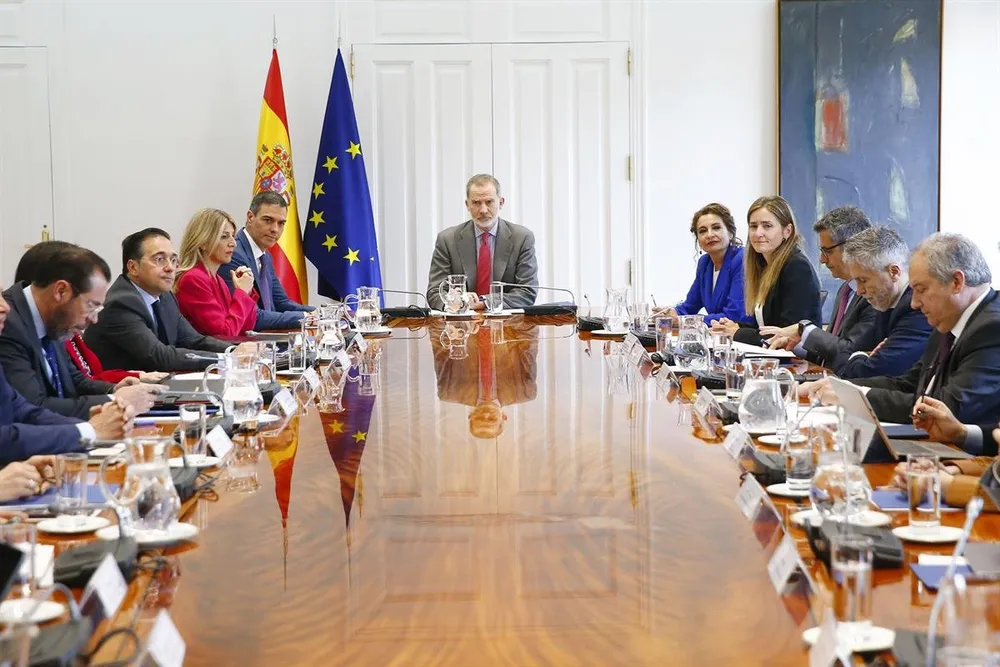Spain faces up to 'electricity island' risk as mega-blackout probes launched
Spanish Prime Minister says government will get to the bottom of how the blackout occurred and make sure private operators pay for mistakes

Several investigations are being launched to find the cause of the massive blackouts that hit Spain and Portugal on Monday, as energy sector analysts warned that Spain's high renewables penetration required urgent investments in grid-scale storage and more interconnections.
The blackouts brought both countries to a standstill on Monday, and both spent much of today getting transport networks and other infrastructure up and running again.
Spanish transmission operator Red Electrica (REE) has not yet provided any clear reason for the outage, although director of services and operations at REE Eduardo Prieto told reporters that the TSO’s initial investigations — carried out in consultation with national institutions for security, cybersecurity and critical infrastructure — had found no evidence of any malicious "third party" role in the blackouts.
A Spanish investigation into the causes of the blackouts will be led by the country’s Ministry of Ecological Transition, according to a televised statement by Spanish Prime Minister Pedro Sanchez.
Sanchez said private operators of electricity generating capacity are also carrying out their own investigations and will report to the government.
"We want to make clear that the Spanish government will get to the bottom of this," Sanchez said.
"We will make any changes needed to make sure this does not happen again and we will make sure that private operators are made to take responsibility for what happened."
Spain’s National Security Council has also requested an independent report from the EU’s group for the coordination of electricity, which reports to the European Commission.
Portuguese Prime Minister Luís Montenegro said today that he too has requested an independent investigation by EU energy regulators.
Portugal, which was receiving about 30% of its electricity from Spain when the outage occurred, is set to hold general elections on 18 May.
Montenegro cancelled a televised election debate that was scheduled for Monday as a result of the blackout.
Although there is no clear explanation yet of the causes of the blackouts, details emerged of a big frequency surge, followed soon afterwards by an equally violent crash, apparently triggering the outage and a "breakdown in interconnections with France".
Prieto said 15GW of electricity dropped out of the system in just five seconds.
Once the huge disconnection of renewable power generation had occurred it was not possible to recover tension without extreme disruption, Prieto said.
Responding to reporters’ questions, Prieto said it was “very possible” that the initial trigger for the volatility came from solar PV installations in Spain.
“These are not definitive conclusions, we don’t have the complete information,” Prieto said.
Despite REE's reassurances, Sanchez said the government-led investigation will continue to seek input from specialists in cybersecurity to investigate the possibility of any attacks.
Electricity island risks
Gonzalo Escribano, climate and energy director at Spain's Real Instituto Elcano, said that Spain needed to face up to "a problem of flexibility" in its electricity system which, he said, relates to the high penetration of renewables and very little interconnection capacity.
"The problem is not one of lack of generation but excessive capacity . The obvious solution for this is storage, but this technology is still developing and is expensive. We are not deploying it fast enough," he told RNE radio today (Tuesday).
"There are high volumes of renewables, and particularly high installed capacity of solar and not all of this is controlled well by (REE)."
REE put the grid back in operation with the help of domestic nuclear and hydro, as well as restored interconnections with France and Morocco.
In Escribano's view, what had "saved" Spain was the reestablishment of stable electricity supplies via these interconnectors.
"We often hear criticism in Spain of other countries wanting to import nuclear electricity or electricity that is associated with carbon emission," he noted, referring to France and Morrocco.
"But this episode demonstrates how fundamental interconnectors are. Spain is an electricity island, and this carries a lot of risks. Working to increase interconnectors with the rest of Europe is fundamental," he said.
(Copyright)